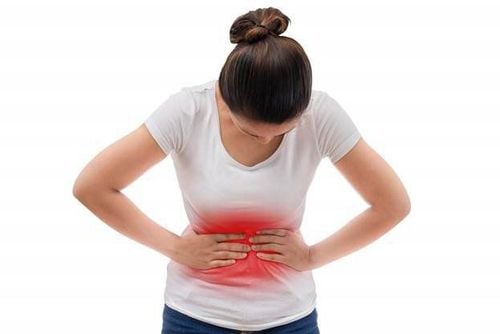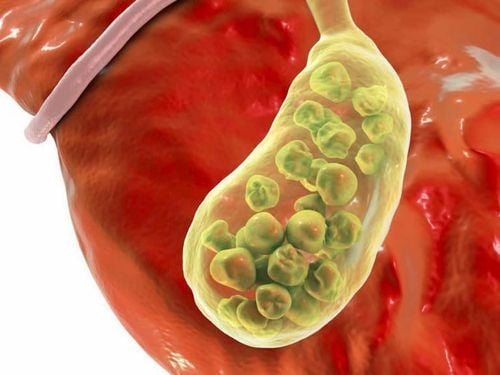Acute pancreatitis is an inflammatory condition of the pancreas that occurs suddenly in a short period of time, ranging from mild to severe, which can be life-threatening. Nutrition plays a very important role in supporting the treatment of acute pancreatitis, contributing to improving symptoms and preventing recurrent acute pancreatitis. A question that many patients are interested in is whether acute pancreatitis can drink milk, the answer will be in the article below.
1. The Function of the Pancreas in the Body
The pancreas is an essential organ in the digestive system, serving both exocrine and endocrine functions.
Exocrine Function: It produces enzymes and secretes pancreatic juices to aid in the digestion of food.
Endocrine Function: It releases hormones, such as insulin and glucagon, into the bloodstream to regulate blood sugar levels.
When the pancreas becomes inflamed, its digestive and regulatory functions are disrupted. Thus, managing nutrition is critical in both treating acute pancreatitis and reducing the risk of recurrence.
2. Nutritional Principles for Treating Acute Pancreatitis
Proper nutrition is vital during the treatment of acute pancreatitis. Adherence to the following guidelines can help support recovery:
Mild to moderate cases: Patients can begin eating orally once their abdominal pain subsides by approximately 70%. If oral intake is poorly tolerated, a gastric feeding tube may be required.
Severe cases: Nutrition is provided via a nasogastric or nasojejunal feeding tube. If the digestive system cannot tolerate enteral feeding, patients may be given semi-elemental or hydrolyzed formulas, such as partially hydrolyzed milk, or elemental formulas.
If enteral feeding fails to meet energy requirements after 5–7 days, parenteral nutrition (intravenous feeding) may be used. Recommended macronutrient ratios include: Protein (Protid): 1.2–1.5 g/kg/day, Carbohydrates: 4–7 mg CHO/kg/minute, Glutamine: >0.2 g/kg, Lipids: 0.8–1.5 g/kg/day, A low-fat diet should be maintained even after recovery, limiting fat intake to no more than 30 grams per day to prevent hyperlipidemia and avoid stimulating pancreatic secretions.
3. Can People with Acute Pancreatitis Drink Milk?
Many patients wonder whether milk is safe for consumption during acute pancreatitis. The general recommendation from experts is to opt for low-fat or fat-free milk and milk alternatives, such as: Almond milk, soy milk and rice milk.
Benefits of Yogurt: Unsweetened yogurt contains lactic acid and digestive enzymes, which promote better digestion and easier food processing. Patients are encouraged to consume 1–2 cups of unsweetened yogurt daily.
However, high-fat dairy products, such as cheese and cream-based items (e.g., milkshakes, cheese cakes), should be avoided as they can trigger pancreatic enzyme secretion and worsen inflammation.
4. Foods Recommended for People with Acute Pancreatitis
The following categories of foods are recommended to support recovery:
Protein Sources: Lean meats Chicken (skinless) and fish, Egg whites, Plant-based proteins: Beans, tofu, and lentils
Carbohydrates: Patients with acute pancreatitis should prioritize easily digestible carbohydrate sources during the early stages of recovery. These include: rice, bread, whole grains, oats, whole wheat flour or low-fat, sugar-free sweet treats.
Fruits and Vegetables
Fiber-Rich choices: Leafy greens and broccoli are excellent due to their sulfur-containing compounds, which aid in detoxification, including the pancreas.
Anti-inflammatory options: Mushrooms (e.g., King oyster, shiitake, button, wood ear mushrooms) have compounds that reduce inflammation and swelling.
Potatoes such as sweet potatoes,... contain beta-carotene, a powerful antioxidant and have good effects on the pancreas.
Antioxidant-rich fruits: Berries (e.g., strawberries, raspberries, cherries) are high in antioxidants, which help improve pancreatic function.
Hydration: Drink 1.5–2 liters of water daily. Suitable options include: Plain water, unsweetened fruit juices and vegetable juices without added sugar. It is important to avoid alcoholic beverages and carbonated drinks, as they can worsen symptoms and delay recovery.
5. Foods to Avoid for Acute Pancreatitis
High-Fat foods: Butter, animal fats, and high-fat oils. Dishes prepared with excessive oil, such as fried foods, stir-fried vegetables, sausages, and processed meats like salami, should be limited. For red meat, which is high in both protein and fat, it is recommended to select lean cuts with minimal fat content or opt for alternative protein sources such as eggs, beans, or legumes.
Sugary or cold foods: Acute pancreatitis impairs pancreatic function and disrupts digestive enzyme secretion, which reduces the body’s ability to digest certain foods. Therefore, patients should avoid overly sweet, cold, or fatty items, including: Ice cream, cheese, chocolate and sugary beverages
Alcoholic and carbonated drinks: Alcohol is a primary cause of acute pancreatitis, and strict abstinence from alcohol and other alcoholic beverages like beer and wine is essential.
Spicy foods: Spicy condiments such as mustard, chili paste, and hot sauces can exacerbate symptoms and delay recovery. These should be minimized or eliminated from the diet of patients with acute pancreatitis.
Acute pancreatitis is a condition that requires a strictly managed diet tailored to the patient’s stage of recovery. During stable periods, patients can consume low-fat or fat-free milk, unsweetened yogurt, and milk alternatives like soy and almond milk. They should, however, avoid high-fat dairy products, alcohol, sugary beverages to prevent aggravating symptoms.
To arrange an appointment, please call … or make your reservation directly HERE. You may also download the MyVinmec app to schedule appointments faster and manage your reservations more conveniently.









